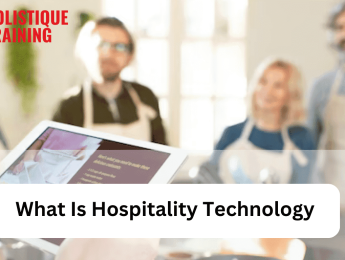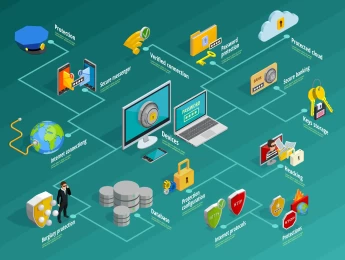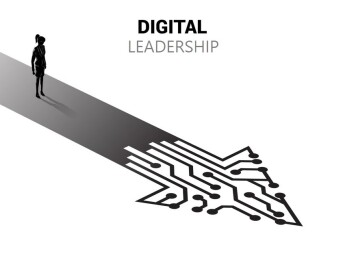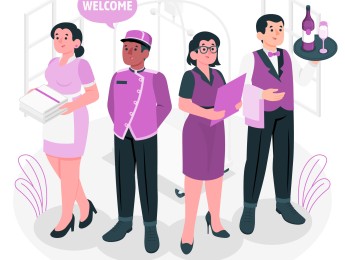Introduction
In the fast-paced and competitive world of hospitality, staying ahead of the curve is vital for success. Technology has played a significant role in reshaping the hospitality industry, revolutionising the way hotels, restaurants, and travel businesses operate. From enhancing guest experiences to streamlining operations, hospitality technology has become an indispensable part of the industry. In this comprehensive exploration, we will delve into the concept of hospitality technology, explore its importance, and uncover the latest trends driving digital transformation in this dynamic sector.
What Is Hospitality Technology?
Hospitality technology is the backbone of modern guest experiences, encompassing a diverse array of digital tools and innovations tailored for hotels, restaurants, and travel businesses. Its evolution has been swift, transforming traditional approaches into streamlined, guest-centric processes.
Online Booking and Reservation Systems
At the heart of hospitality technology lies online booking and reservation systems, facilitating seamless transactions for both guests and businesses. These systems offer not just the convenience of booking accommodations, dining, and services, but they also serve as a centralised hub for managing inventory effectively. Through intuitive interfaces, guests can explore options, customise their experiences, and confirm bookings in real-time. For businesses, these systems automate the reservation process, ensuring accuracy, reducing double bookings, and maximising occupancy.
Mobile Check-ins and Digital Keys
The rise of smartphones has ushered in the era of mobile check-ins and digital keys, revolutionising the arrival experience for guests. No longer constrained by the traditional front desk queues, travellers can check-in remotely using their smartphones. Digital keys, often accessible through hotel apps, grant guests secure access to their rooms and amenities. This not only enhances convenience but also minimises physical interactions, a feature especially valued in the context of health and safety concerns.
Data Analytics and Personalisation
Data analytics has emerged as a cornerstone of hospitality technology, offering invaluable insights derived from guest data. By leveraging sophisticated algorithms, businesses can decipher patterns and preferences, enabling them to personalise guest experiences to an unprecedented degree. Understanding guest behaviour, such as preferred amenities, room choices, and dining options, empowers hotels and restaurants to tailor their offerings, ensuring guest satisfaction. For instance, if a guest frequently orders vegetarian meals, a hotel can proactively offer a curated menu, enhancing the guest's overall experience.
Artificial Intelligence and Chatbots
Artificial Intelligence (AI) has found its niche in hospitality through chatbots – intelligent virtual assistants that provide real-time support to guests. These chatbots are equipped to handle a myriad of tasks, from answering frequently asked questions to processing reservations. AI algorithms, fueled by machine learning, enable these chatbots to learn and adapt, ensuring more accurate and personalised interactions over time. Guests benefit from instant responses, available 24/7, enhancing their overall satisfaction. For businesses, AI-driven chatbots streamline communication, freeing up human resources for more intricate guest requirements.
Internet of Things (IoT) in Hospitality
The Internet of Things (IoT) has seamlessly integrated itself into hospitality operations. IoT devices, ranging from smart thermostats to automated lighting systems, are interconnected, enhancing both guest comfort and operational efficiency. For instance, smart thermostats can adjust room temperatures automatically based on guest preferences, ensuring a personalised and comfortable stay. Furthermore, IoT devices enable remote monitoring and control, allowing businesses to manage energy consumption, thereby reducing costs and minimising their environmental footprint.
In summary, hospitality technology is not just a collection of digital innovations; it is a transformative force reshaping the industry. By embracing these technologies, businesses are not only meeting but exceeding guest expectations, creating memorable experiences that resonate long after check-out. As technology continues to advance, the possibilities within the realm of hospitality technology are limitless, promising a future where every guest encounter is seamless, personalised, and enriching.
Why Is Hospitality Technology Important?
Hospitality technology is not merely a trend; it is a strategic imperative for businesses in the industry. According to Hotel Tech Report, by 2022, a significant 85.9% of hoteliers have either implemented or are considering the implementation of in-room technology. Interestingly, this marks a considerable increase compared to the pre-COVID era when only 59% of hoteliers utilised in-room technology. Before the pandemic, the most prevalent form of technology in hotels was guest surveys, with a substantial 74% of hoteliers employing tech-powered surveys. That said, let’s discuss why it is important to embrace technology in the hospitality industry:
Enhanced Guest Experience
In the contemporary era, guest expectations have transcended mere comfort; they demand personalised, seamless experiences. Hospitality technology acts as the catalyst in fulfilling these expectations. From the moment a guest considers a reservation, technology comes into play. Intuitive websites and mobile apps offer user-friendly interfaces, simplifying the booking process. AI-driven chatbots provide instant responses, aiding guests in their queries, while online platforms offer dynamic visuals and detailed information, aiding travellers in making informed decisions. The integration of technology ensures that the guest's journey, from reservation to check-out, is marked by convenience, customisation, and care.
Operational Efficiency
Efficiency is the linchpin of any successful hospitality venture. Technology optimises various operational aspects, diminishing manual errors, and enhancing overall efficiency. Streamlining tasks such as check-ins, housekeeping schedules, and inventory management, technology ensures that operations run seamlessly. For instance, inventory management software monitors stock levels, automates reordering processes, and even predicts demand patterns. Automated housekeeping management systems assign tasks based on real-time occupancy, ensuring rooms are prepared promptly after check-outs. Such automation not only saves time but also minimises wastage, leading to cost savings and improved resource allocation.
Real-time Insights
Data is the lifeblood of modern businesses, and the hospitality industry is no exception. Hospitality technology provides a robust framework for collecting, analysing, and leveraging data in real-time. Advanced analytics tools process vast datasets, offering deep insights into guest preferences, behaviours, and feedback. These insights empower decision-makers to make data-driven choices. For instance, analysing guest preferences can guide menu changes, room refurbishments, or the introduction of new amenities. By understanding occupancy patterns, hotels can optimise pricing strategies, ensuring rooms are competitively priced during peak seasons and attractive discounts are offered during off-peak periods. Real-time insights transform data into actionable intelligence, enabling businesses to adapt swiftly to market demands and guest expectations.
Table 1: The benefits of different technological solutions
Technology Solution | Benefits |
Automated Check-ins | Reduces Queues and Human Errors |
Digital Inventory Management | Prevents Overstocking and Wastage |
Housekeeping Software | Optimises Staff Assignments |
Advanced Analytics | Real-time Data for Informed Decisions |
Competitive Advantage
In the fiercely competitive landscape of the hospitality industry, gaining a competitive edge is paramount. Embracing cutting-edge hospitality technology not only keeps businesses in the race but propels them ahead. Tech-savvy travellers, increasingly reliant on digital platforms for travel planning, are naturally drawn to hotels and restaurants offering seamless online experiences. Positive online reviews, facilitated by exceptional technology-driven experiences, enhance a brand's reputation, attracting more guests. Moreover, a reputation for technological innovation fosters trust, enticing guests to choose a particular establishment over competitors. By consistently implementing the latest technological trends, businesses create a unique selling proposition that differentiates them from the competition, fostering customer loyalty and long-term success.
In essence, hospitality technology is not just a tool; it is a strategic imperative. It transforms guest experiences, enhances operational efficiency, provides invaluable insights, and creates a competitive advantage. As technology continues to evolve, its integration within the hospitality industry is not a choice but a necessity. Those who harness the power of technology are not only meeting but exceeding guest expectations, ensuring their place at the forefront of the ever-evolving and dynamic world of hospitality.
The Latest Trends in Hospitality Technology
To remain at the forefront of the industry, businesses must keep a close eye on the latest technology trends shaping the hospitality landscape. Here are some of the most significant trends driving digital transformation in the sector:
Contactless Technology
The global pandemic reshaped the way hospitality operates, elevating the significance of contactless technology. This trend extends from the initial booking process to the guest's departure. Contactless check-ins have become the norm, minimising physical interactions and reducing the risk of infection. Digital payments and mobile ordering systems enable guests to settle bills and place orders without handling cash or menus, ensuring a safer and more hygienic environment. Hotels and restaurants have swiftly adapted, integrating contactless solutions into their operations, showcasing a commitment to guest safety and convenience.
Voice-Activated Assistants
Voice-activated assistants, powered by artificial intelligence, have stepped out of sci-fi realms and into the hospitality sector. Smart devices like Amazon's Alexa and Google Home have found their way into hotel rooms, enhancing guest experiences through voice commands. Guests can control room amenities, request services, or inquire about local attractions simply by speaking, adding a touch of futuristic luxury to their stay. These voice-activated assistants not only offer convenience but also personalise guest interactions, creating a sense of exclusivity and sophistication.
Augmented Reality (AR) and Virtual Reality (VR)
Augmented Reality (AR) and Virtual Reality (VR) technologies have transcended gaming and entertainment, making a significant impact on the hospitality industry. Hotels and restaurants are utilising AR to provide virtual tours, allowing potential guests to explore rooms, facilities, and amenities remotely. VR, on the other hand, transforms dining experiences. Restaurants are creating immersive VR environments where patrons can enjoy virtual travel while savouring their meals. These technologies transport guests to different worlds, enhancing their dining or lodging experience beyond physical boundaries, creating a memorable and unique ambiance.
Blockchain for Security and Transparency
Blockchain technology, renowned for its association with cryptocurrencies, has found a new application in hospitality: enhancing security and transparency. In the digital age, securing guest data is paramount. Blockchain offers a decentralised, tamper-proof ledger, ensuring that guest information remains confidential and secure. Moreover, according to MDPI, blockchain technology can change how hotels get paid, making it safe and easy. Additionally, it underpins loyalty reward programmes, allowing seamless accrual and redemption of points, enhancing guest loyalty and satisfaction.
Sustainability and Green Technology
As environmental concerns continue to grow, the hospitality industry is embracing sustainability and green technology. Energy-efficient appliances, LED lighting, and intelligent HVAC systems are becoming standard in hotels and restaurants. Waste management systems are being optimised, reducing the ecological footprint. Moreover, renewable energy sources, such as solar panels, are increasingly powering establishments, promoting eco-friendly practices. Guests, especially eco-conscious travellers, are appreciating and seeking out these environmentally responsible accommodations and dining options, driving the demand for sustainable practices within the industry.
Table 2: The benefits of eco-friendly practices in hospitality
In summary, these latest trends in hospitality technology are not just novelties; they are transformative forces shaping the future of the industry. From ensuring safety through contactless solutions to providing immersive experiences with AR and VR, these technologies are reshaping guest interactions and expectations. Blockchain is guaranteeing security and transparency, assuring guests of the integrity of their data. Additionally, the industry's commitment to sustainability not only reduces its environmental impact but also resonates with environmentally conscious guests. By embracing these trends, businesses are not just staying ahead; they are defining the future landscape of hospitality, where innovation meets responsibility, creating exceptional and sustainable experiences for every guest.
The Rise of Robot Concierges
In recent years, the hospitality industry has witnessed a remarkable evolution with the introduction of robot concierges. These intelligent machines, equipped with artificial intelligence and advanced sensors, are reshaping the guest service landscape in hotels and restaurants. Here, we explore the intriguing world of robot concierges and how they are revolutionising guest experiences.
Robotic Concierge in Hotels
Robot concierges in hotels are changing the way guests check-in. With facial recognition technology, these robots can identify guests, process check-ins, and provide room keys, ensuring a swift and contactless experience. Moreover, they offer valuable information about hotel amenities, local attractions, and dining options, acting as knowledgeable guides for travellers. Guests can interact with these robots using touch screens or voice commands, receiving instant responses to their queries, enhancing the overall convenience of their stay.
Robotic Waitstaff in Restaurants
In restaurants, robotic waitstaff are becoming a common sight. These robots can navigate crowded spaces, carry food and beverages to tables, and even interact with diners. Equipped with tray-like surfaces, these robots deliver dishes to specific tables, ensuring accuracy in orders. Some establishments have taken this a step further, integrating robots into the dining experience. For instance, sushi restaurants employ conveyor belt robots that deliver plates directly to customers' tables, creating an entertaining and futuristic dining atmosphere. These robots not only enhance operational efficiency but also offer a unique and memorable dining experience for guests.
Robotics and Customisation
Robot concierges are not just efficient; they are also highly adaptable. Through data analysis and AI algorithms, these robots can learn guest preferences and behaviours. For instance, a robot concierge in a hotel might remember a guest's preferred room temperature, choice of newspapers, or favourite snacks. When the guest revisits, the robot can proactively adjust the room settings or recommend personalised services, creating a highly customised experience. This level of personalisation enhances guest satisfaction, making them feel valued and understood, ultimately fostering guest loyalty.
Challenges and Ethical Considerations in Robotic Hospitality
While the rise of robot concierges presents exciting opportunities, it also raises ethical questions. Concerns about job displacement, guest privacy, and the potential dehumanisation of hospitality services are important considerations. Striking a balance between technological innovation and the human touch is essential. Hospitality businesses must ensure that while robots enhance efficiency, the warmth and empathy of human interactions remain integral to the guest experience.
The integration of robot concierges in the hospitality sector marks a paradigm shift, offering a glimpse into a future where technology and hospitality seamlessly coexist. As these robots become more sophisticated, they are poised to redefine guest services further. The journey into this robotic frontier not only enhances operational efficiency but also adds a layer of novelty and intrigue to guest experiences, making every interaction an innovative and memorable affair.
Empowering Tourism Through Hospitality Technology
Hospitality technology isn't limited to enhancing guest experiences within hotel rooms or restaurants; it also plays a pivotal role in transforming and empowering the broader tourism industry. Here, we delve into how technology is reshaping the way people travel, explore new destinations, and make the most of their tourism experiences.
Smart Destination Management Systems
Modern tourism thrives on efficient destination management systems powered by technology. Cities and regions are adopting smart solutions to improve the visitor experience. Smart city initiatives leverage data analytics and Internet of Things (IoT) devices to monitor crowd density, optimise traffic flow, and enhance safety. For tourists, this means smoother and safer exploration of popular destinations, reducing congestion and wait times at popular attractions. Advanced navigation apps provide real-time updates on public transportation, traffic conditions, and even suggest lesser-known but culturally rich places to visit, helping travellers make the most of their trips.
Online Travel Platforms and Booking Engines
The rise of online travel platforms and booking engines has democratised travel planning. Travellers can now explore destinations, compare accommodation options, and book flights, hotels, and tours from the comfort of their homes. These platforms offer transparent pricing, user reviews, and dynamic packages, empowering travellers to tailor their trips to their preferences and budgets. Technology has made it easier for tourists to find unique accommodations, from boutique hotels to vacation rentals, enabling them to experience a destination like a local.
Augmented Reality (AR) for Cultural Exploration
Augmented Reality (AR) apps and experiences have breathed new life into cultural exploration. Tourists can use AR apps to enhance their museum visits, historical site tours, and city walks. For instance, AR apps can overlay historical images and information on a smartphone screen when pointed at a monument, offering a richer context to the traveller. Such immersive experiences not only educate but also create lasting memories, making cultural exploration more engaging and accessible to a wider audience.
Language Translation and Communication Apps
Language barriers can often hinder tourism experiences. However, technology has bridged this gap with language translation apps and real-time communication tools. Travellers can use smartphone apps that instantly translate spoken or written phrases, making it easier to communicate with locals and navigate foreign countries. Additionally, real-time messaging apps keep tourists connected with friends and family back home and allow them to seek local recommendations, ensuring a seamless travel experience.
Sustainable Tourism Practices
Sustainability is a growing concern in tourism, and technology is helping address it. Eco-friendly transportation options, such as electric scooters and shared bicycles, are readily available in many tourist destinations, reducing the carbon footprint of travellers. Apps and websites dedicated to eco-conscious tourism provide information on eco-friendly accommodations, responsible tour operators, and sustainable activities. Travellers can make informed choices that not only minimise their environmental impact but also support local communities and preservation efforts.
Enhancing Tourist Safety and Security
Safety is a top priority for tourists, and technology plays a crucial role in ensuring their well-being. Mobile apps and platforms provide real-time safety information, including weather updates, emergency contact details, and notifications about potential hazards or local advisories. GPS-enabled tracking devices and apps enhance the security of solo travellers by allowing them to share their location with trusted contacts. Technology empowers tourists with tools and information to make informed decisions about their safety and security while exploring new destinations.
Importance of Ethics in Hospitality Technology
As the industry embraces the digital age and leverages cutting-edge technologies, the importance of ethics in hospitality cannot be overstated. Ethical considerations are crucial to ensuring that technology serves as a force for good, benefiting both businesses and guests. Here are some key aspects of ethics in the hospitality technology era:
Guest Privacy and Data Security
With the influx of technology, hospitality businesses collect an abundance of guest data, ranging from personal information to preferences and behaviours. Ensuring the privacy and security of this data is paramount. Robust data protection measures, including encryption protocols and secure servers, are essential. Adherence to stringent data regulations such as GDPR (General Data Protection Regulation) is mandatory. Moreover, transparent communication with guests about data collection, usage, and retention policies is vital. Providing guests with clear information fosters trust and allows them to make informed decisions about sharing their data, establishing a foundation of ethical data management.
Transparency in AI and Algorithms
As AI and machine learning algorithms become integral to guest interactions, transparency is non-negotiable. Guests should be aware when they are interacting with AI chatbots or receiving personalised recommendations based on their data. Transparent communication builds trust. Disclosing the use of AI ensures guests are aware of the technology's involvement in their experience. Additionally, businesses should provide clear guidelines on how AI-driven decisions are made, ensuring transparency in algorithms. This transparency not only fosters trust but also empowers guests, allowing them to engage knowingly with technology, promoting ethical AI usage.
Addressing Bias and Fairness
AI algorithms, if not carefully designed, can inadvertently perpetuate biases, leading to unfair treatment of guests. It is crucial to address biases in AI systems to ensure fairness. Regular audits of algorithms, specifically designed to identify biases, are imperative. These audits help businesses recognise and rectify any unfairness, ensuring that all guests are treated equitably. By acknowledging and correcting biases, businesses uphold the principles of fairness and equality, promoting ethical AI applications within the hospitality sector.
Ensuring Inclusivity and Accessibility
Hospitality technology should be inclusive and accessible to all guests, regardless of their abilities or backgrounds. Websites, mobile apps, and other digital interfaces should comply with accessibility standards, ensuring that everyone, including those with disabilities, can access information and services seamlessly. Implementing features such as screen readers, voice commands, and easily navigable interfaces fosters inclusivity. By ensuring accessibility, businesses embrace a diverse clientele, promoting ethical practices that prioritise equal opportunities and seamless experiences for all.
Sustainable Tech Solutions
Ethics in hospitality technology extends beyond guest interactions to environmental responsibility. Embracing sustainable tech solutions, such as energy-efficient devices, water-saving mechanisms, and waste reduction initiatives, is an ethical imperative. The hospitality industry's contribution to environmental conservation is significant. By adopting eco-friendly practices and technologies, businesses reduce their carbon footprint, demonstrating a commitment to ethical environmental stewardship. Sustainability not only benefits the environment but also resonates with eco-conscious guests, enhancing a business’s ethical standing and appealing to a socially responsible customer base.
Empathy in Tech-Enabled Interactions
Despite the prevalence of technology, the essence of hospitality lies in human interactions. Empathy and emotional intelligence remain indispensable. Technology should augment, not replace, the human touch. Empathetic communication is vital, especially in situations where guests require assistance beyond the capabilities of automated systems. Training staff to use technology empathetically ensures that even in tech-enabled interactions, the warmth of human understanding prevails. This empathetic approach reinforces the ethical foundation of hospitality, emphasising the importance of genuine care and consideration, irrespective of technological interventions.
Conclusion
Hospitality technology is more than just a buzzword; it is the driving force behind the industry's transformation. From providing exceptional guest experiences to optimising operations and maximising revenue, technology has become an integral part of every aspect of hospitality. To thrive in this ever-changing landscape, businesses must embrace the latest trends and invest in training their staff to adapt to the digital transformation. By doing so, they can elevate their offerings, gain a competitive edge, and ensure long-term success in the dynamic world of hospitality. In this digital era, the fusion of technology and ethics paves the way for a new standard of hospitality, where innovation meets responsibility, creating unforgettable experiences for every guest.


























